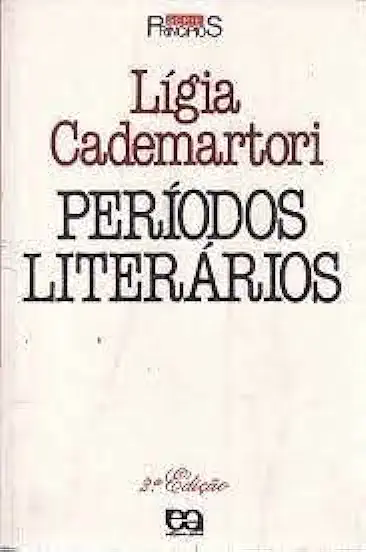
Literary Periods - Ligia Cademartori
Literary Periods: A Comprehensive Guide to the History of Literature
Introduction
In this comprehensive guide, renowned literary scholar Ligia Cademartori takes readers on a captivating journey through the evolution of literature, exploring the major periods, movements, and genres that have shaped the literary landscape. From the ancient epics of Homer to the postmodern experiments of the 20th century, Literary Periods offers a panoramic view of the literary world, providing readers with a deeper understanding and appreciation of the written word.
Ancient Literature
The book begins by delving into the rich tapestry of ancient literature, tracing its origins in the oral traditions of early civilizations. Readers are introduced to the foundational works of Homer, Virgil, and Ovid, whose epic poems and mythological tales laid the groundwork for Western literature. The exploration of ancient literature also encompasses the drama of Greek playwrights like Sophocles and Euripides, as well as the philosophical musings of Plato and Aristotle.
Medieval Literature
The journey continues into the Middle Ages, a period marked by religious fervor and cultural transformation. Cademartori sheds light on the rise of chivalric romances, such as the Arthurian legends, and the emergence of vernacular literature, exemplified by the works of Dante Alighieri, Geoffrey Chaucer, and Christine de Pizan. This section also delves into the vibrant world of medieval lyric poetry and the profound influence of religious texts, including the Bible and the Quran.
Renaissance and Early Modern Literature
The book then ushers readers into the vibrant era of the Renaissance and Early Modern period, characterized by a renewed interest in classical learning and a flourishing of artistic and intellectual pursuits. Cademartori explores the literary giants of this age, including William Shakespeare, Miguel de Cervantes, and Edmund Spenser, whose works reflected the complexities of human nature, societal change, and the exploration of new worlds. This section also examines the rise of the novel and the emergence of distinct literary genres, such as pastoral romance and satire.
Enlightenment and Romantic Literature
The narrative moves forward to the Enlightenment and Romantic periods, marked by profound shifts in philosophical thought and artistic expression. Cademartori delves into the intellectual ferment of the Enlightenment, showcasing the works of Voltaire, Rousseau, and Mary Wollstonecraft, who challenged societal norms and advocated for reason and individual rights. The exploration of Romanticism highlights the emotional intensity, imagination, and celebration of nature found in the writings of William Wordsworth, Samuel Taylor Coleridge, and Mary Shelley.
Realism, Naturalism, and Modernism
The book progresses into the 19th and 20th centuries, examining the rise of Realism, Naturalism, and Modernism. Cademartori analyzes the works of Charles Dickens, Gustave Flaubert, and Émile Zola, who sought to depict life with unflinching accuracy and social consciousness. The exploration of Modernism delves into the experimental techniques and fragmented narratives employed by James Joyce, Virginia Woolf, and T.S. Eliot, reflecting the complexities and uncertainties of the modern world.
Postmodern and Contemporary Literature
The final section of the book explores the postmodern and contemporary literary landscape, characterized by a rejection of traditional forms and a celebration of diversity and experimentation. Cademartori examines the works of postmodern masters like Salman Rushdie, Margaret Atwood, and Italo Calvino, who challenged conventional storytelling and embraced metafiction and magical realism. The exploration of contemporary literature highlights the rise of multiculturalism, globalization, and the impact of digital technology on literary expression.
Conclusion
Literary Periods concludes with a thoughtful reflection on the enduring power of literature and its ability to shape human experience. Cademartori emphasizes the importance of reading and understanding literature as a means of connecting with our past, exploring different cultures, and gaining insights into the human condition. This comprehensive guide serves as an invaluable resource for students, scholars, and literature enthusiasts alike, offering a profound appreciation for the richness and diversity of literary history.